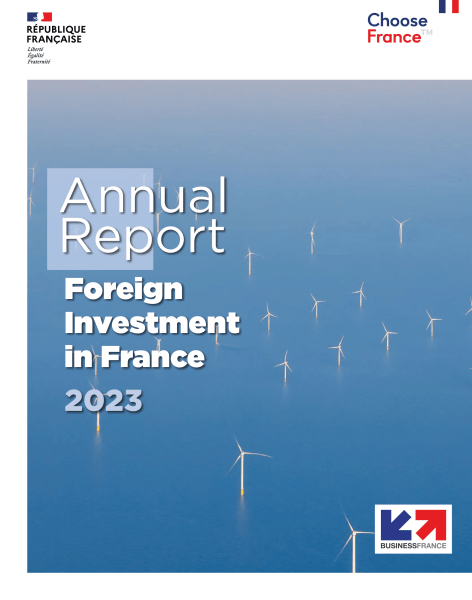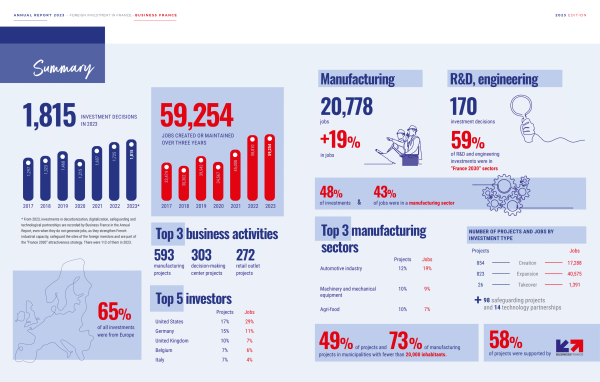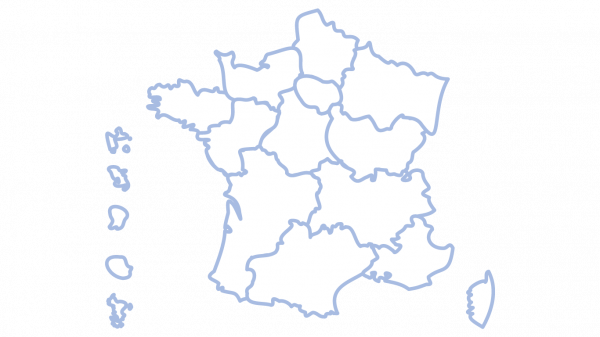New investment champion in Europe
France strengthens its economic attractiveness in an unstable global environment
.
France is an open economy
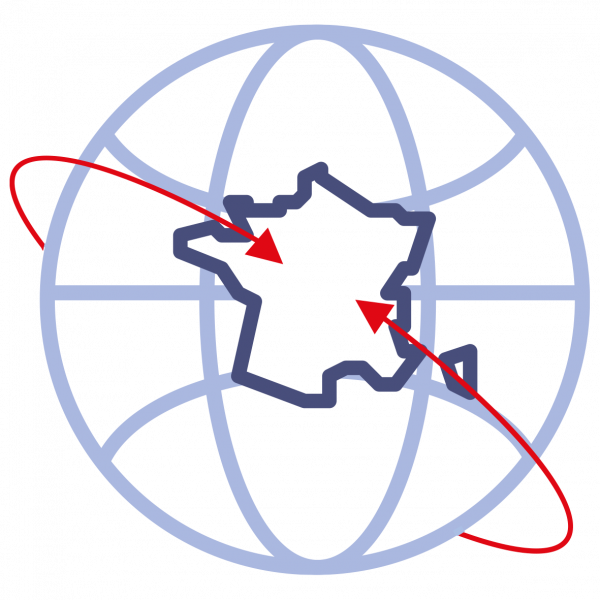
Europe’s most attractive country
for foreign investment in 2023
(EY, 2024)

#1 OECD country
in terms of public funding and tax incentives for business R&D
(OECD, 2023)

More than 68 million consumers
on January 1, 2023
(Insee, 2023)
Foreign investment in France in 2023
In 2023, 1,815 investment decisions were identified. These projects will enable 59,254 jobs to be created or maintained over three years.
Investments in decarbonization, digitalization, safeguarding and technological partnerships are now recorded by Business France in the Annual Report, even if they do not generate jobs, as they strengthen the French manufacturing base, modernize the sites of foreign investors and form part of the “France 2030” attractiveness strategy. There were 112 of them in 2023.
These results confirm that France has managed to maintain its economic attractiveness to international investors. They are the result of a vast program of structural reforms implemented since 2017 by President Emmanuel Macron and his government, aimed at transforming the economy and business activity, and making the country more competitive. Furthermore, for the fourth consecutive year, France remains the leading country in Europe for foreign investment.
France’s attractiveness, an economic asset that stimulates growth and employment
The Attractiveness Scoreboard assesses France’s attractiveness, comparing it with its main competitors on the basis of objective criteria.
A valuable decision-making tool and objective reading grid highlighting France’s strengths and points for improvement, the 2022-2023 edition of the Scoreboard is available in seven booklets.

The size of a country’s market, measured notably by GDP and the number of inhabitants, its strength and its location are often decisive criteria for multinational firms deciding where to set up.
In 2022, France was the world’s seventh largest economy after the United States, China, Japan, Germany, India and the United Kingdom.

France’s administrative and regulatory environment has become much more modern in recent years, following major reforms that are still ongoing. Thanks to its modern and efficient e-government services, the French government can now support projects by private key players and individuals more easily.

France has an environment conducive to research and innovation; it is the sixth country in the world for R&D spending, third in our sample in terms of the number of researchers among the working population and fourth in terms of patent applications. The research tax credit has enabled French research to remain at a very competitive level, similar to that of other advanced economies.

Quality of life is a decisive factor when talent is deciding where to establish itself. It is essential for attracting skilled workers who are increasingly mobile between regions. In France, the public system offers a range of free, high-quality services, particularly in education and healthcare, while supporting household living standards.

France has a highly qualified workforce and continues to invest in education, tertiary education and lifelong learning to maintain its competitive advantage and consolidate its scientific skills base. The French education system is recognized around the world. Foreign students are accounting for 38% of all doctoral students.
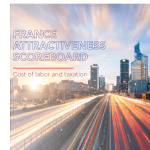
The level of the cost of labor, the prevailing taxation regime on businesses, as well as the productivity of the workforce all have a strong impact on the competitiveness of an economy and its attractiveness. Labor costs in France, while higher than the average across our sample, nevertheless correspond to one of the world’s highest per employee productivity levels: 13th in OECD countries and sixth in our sample.
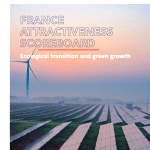
Ecological transition and green growth
The ecological transition and environmental protection are among the main challenges of the 21st century. Green energy generation has become one of the essential challenges of any production activity. With an energy mix dominated by nuclear power, France is able to guarantee businesses largely carbon-free electricity at attractive rates, while increasingly developing green energy sources.
France is an increasingly attractive destination and benefits from structural key strengths

Open economy
More than 50% of foreign investors consider France to be one of the most attractive countries in Europe. France is an open country that appeals to tourists, talent and foreign capital.

Human capital
France is the fourth most dynamic economy among OECD countries for the increase in its production system efficiency.

World-class infrastructure
Paris Charles de Gaulle airport is ranked as the largest airport for cargo in Europe and the second largest for passengers, while Paris Le Bourget is Europe’s leading business airport.

Research & Innovation, a haven for talent
In France, 52.1% of the active 25- to 64-year-old population are employed in science and technology and/or are tertiary education graduates, which is higher than the EU average (47.5%) (Eurostat, 2019).

Dynamic economy and market
In 2020, France was the world’s 7th largest economy (US$2,620 billion). In addition, France occupies a central position within Europe, which is the second largest market in the world.
Job creation was up by 1.1% in France in 2019. The private sector created 210,000 new roles.

A mobile-tastic country
French telecommunications networks are among the best in the world, with €20 billion being invested to ensure 100% nationwide coverage of very high-speed internet by 2022.




